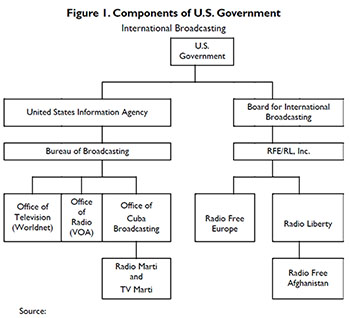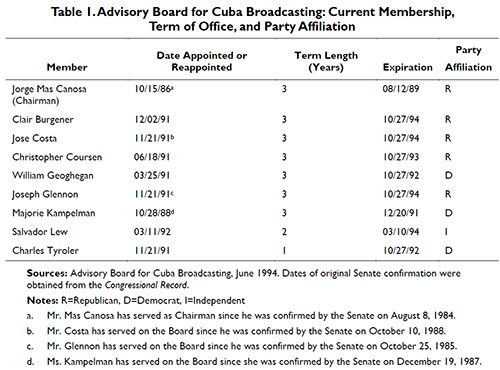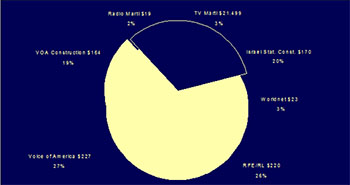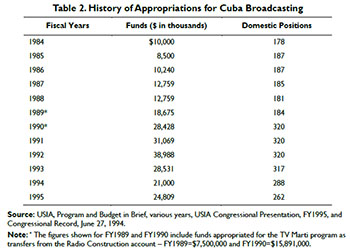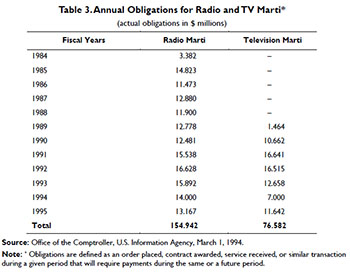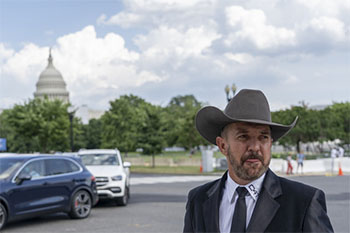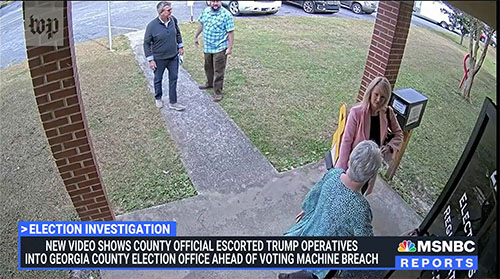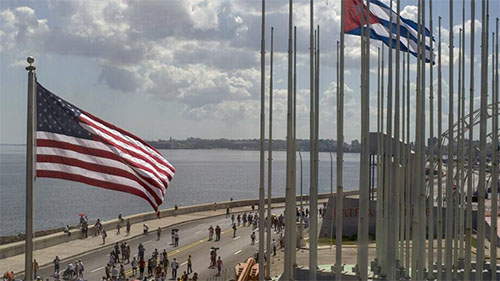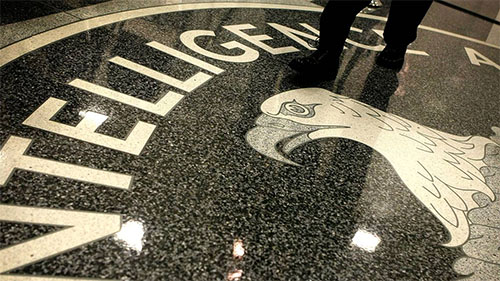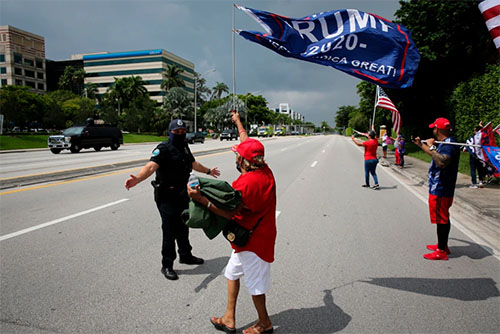by Judge Aileen M. Cannon
Donald J. Trump, Plaintiff, v. United States of America, Defendant.
9/5/22
UNITED STATES DISTRICT COURT
SOUTHERN DISTRICT OF FLORIDA
WEST PALM BEACH DIVISION
CASE NO. 22-81294-CIV-CANNON
DONALD J. TRUMP,
Plaintiff,
v.
UNITED STATES OF AMERICA,
Defendant.
ORDER
THIS CAUSE comes before the Court upon Plaintiff’s Motion for Judicial Oversight and Additional Relief (the "Motion") [ECF No. 1], filed on August 22, 2022. The Court has reviewed the Motion, Plaintiff’s Supplemental Filing [ECF No. 28], the Government’s Response in Opposition [ECF No. 48], Plaintiff’s Reply [ECF No. 58], and the related filings [ECF Nos. 31, 39, 40 (sealed)]. The Court also held a hearing on the Motion on September 1, 2022.
Pursuant to the Court’s equitable jurisdiction and inherent supervisory authority, and mindful of the need to ensure at least the appearance of fairness and integrity under the extraordinary circumstances presented, Plaintiff’s Motion [ECF No. 1] is GRANTED IN PART. The Court hereby authorizes the appointment of a special master to review the seized property for personal items and documents and potentially privileged material subject to claims of attorney- client and/or executive privilege. Furthermore, in natural conjunction with that appointment, and consistent with the value and sequence of special master procedures, the Court also temporarily enjoins the Government from reviewing and using the seized materials for investigative purposes pending completion of the special master’s review or further Court order. This Order shall not impede the classification review and/or intelligence assessment by the Office of the Director of National Intelligence ("ODNI") as described in the Government’s Notice of Receipt of Preliminary Order [ECF No. 31 p. 2].
RELEVANT BACKGROUND
The following is a summary of the record based on the parties’ submissions and oral presentation.1 Throughout 2021, former President Donald J. Trump ("Plaintiff") and the National Archives and Records Administration ("NARA") were engaged in conversations concerning records from Plaintiff’s time in office [ECF No. 1 p. 4; ECF No. 48-1 p. 2].2 In January 2021, as a product of those conversations, Plaintiff transferred fifteen boxes (the "Fifteen Boxes") from his personal residence to NARA [ECF No. 1 pp. 4–5; ECF No. 48 p. 5; ECF No. 48-1 p. 6]. Upon initial review of the Fifteen Boxes, NARA identified the items contained therein as newspapers, magazines, printed news articles, photos, miscellaneous printouts, notes, presidential correspondence, personal records, post-presidential records, and classified records [ECF No. 48 p. 5]. NARA subsequently informed the Department of Justice ("DOJ") of the contents of the boxes, claiming that some items contained markings of "classified national security information" [ECF No. 48 p. 5].
On April 12, 2022, NARA notified Plaintiff that it intended to provide the Fifteen Boxes to the Federal Bureau of Investigation ("FBI") the following week [ECF No. 48 p. 5]. Plaintiff then requested an extension on the contemplated delivery so that he could determine the existence of any privileged material [ECF No. 48-1 p. 7]. The White House Counsel’s Office granted the request [ECF No. 48-1 p. 7]. On May 10, 2022, NARA informed Plaintiff that it would proceed with "provid[ing] the FBI access to the records in question, as requested by the incumbent President, beginning as early as Thursday, May 12, 2022" [ECF No. 48-1 p. 9]. The Government’s filing states that the FBI did not obtain access to the Fifteen Boxes until approximately May 18, 2022 [ECF No. 48 p. 7].
On May 11, 2022, during the period of ongoing communications between Plaintiff and NARA, and before DOJ received the Fifteen Boxes, DOJ "obtained a grand jury subpoena, for which Plaintiff’s counsel accepted service" [ECF No. 48 pp. 7–8; see ECF No. 1 p. 5]. The subpoena was directed to the "Custodian of Records [for] [t]he Office of Donald J. Trump" and requested "[a]ny and all documents or writings in the custody or control of Donald J. Trump and/or the Office of Donald J. Trump bearing classification markings" [ECF No. 48-1 p. 11]. Plaintiff contacted DOJ on June 2, 2022, and requested that FBI agents visit his residence the following day to pick up responsive documents [ECF No. 1 p. 5; ECF No. 48 p. 8]. Upon the FBI’s arrival, Plaintiff’s team handed over documents and permitted the three FBI agents and an accompanying DOJ attorney to visit the storage room where the documents were held [ECF No. 1 pp. 5–6; ECF No. 48 p. 9].
The Government contends that, after further investigation, "the FBI uncovered multiple sources of evidence indicating that the response to the May 11 grand jury subpoena was incomplete," and that potentially classified documents remained at Plaintiff’s residence [ECF No. 48 p. 10]. Based on this evidence and an affidavit that remains partially under seal, on August 5, 2022, the Government applied to a United States Magistrate Judge for a search and seizure warrant of Plaintiff’s residence, citing Title 18, Sections 793, 1519, and 2701 of the United States Code. Finding probable cause for each offense, the Magistrate Judge authorized law enforcement to (1) search Plaintiff’s office, "all storage rooms, and all other rooms or areas within the premises used or available to be used by [Plaintiff] and his staff and in which boxes or documents could be stored," and (2) seize the following: "[a]ny physical documents with classification markings, along with any containers/boxes (including any other contents) in which such documents are located, as well as any other containers/boxes that are collectively stored or found together with the aforementioned documents and containers/boxes"; "[ i]nformation, including communications in any form, regarding the retrieval, storage, or transmission of national defense information or classified material"; "[a]ny government and/or Presidential records created" during Plaintiff’s presidency; or "[a]ny evidence of the knowing alteration, destruction, or concealment of any government and/or Presidential Records, or of any documents with classification markings." USA v. Sealed Search Warrant, No. 22-08332-MJ-BER-1, ECF No. 17 pp. 3–4 (S.D. Fla. Aug. 11, 2022).
On August 8, 2022, pursuant to the search warrant, the Government executed an unannounced search of Plaintiff’s residence. As reflected in the "Detailed Property Inventory" submitted by the Government in this action, agents seized approximately 11,000 documents and 1,800 other items from the office and storage room [ECF No. 39-1].3 The seized property is generally categorized on the inventory as twenty-seven boxes containing documents, with and without classification markings, along with photographs, other documents, and miscellaneous material [ECF No. 1 pp. 24–26].4
Shortly after the search of the residence, Plaintiff’s counsel spoke with the Government and requested the following: a copy of the affidavit in support of the warrant; the Government’s consent to the appointment of a special master "to protect the integrity of privileged documents"; a detailed list of what was taken from the residence and from where exactly; and an opportunity to inspect the seized property [ECF No. 1 pp. 8–9]. The Government denied those requests [ECF No. 1 p. 9].5
In the absence of any agreement between the parties, on August 22, 2022, Plaintiff filed the Motion for Judicial Oversight and Additional Relief, seeking (1) the appointment of a special master to oversee the review of seized materials regarding identification of personal property and privilege review; (2) the enjoinment of further review of the seized materials until a special master is appointed; (3) a more detailed receipt for property; and (4) the return of any items seized in excess of the search warrant [ECF No. 1 p. 21; ECF No. 28 p. 10].
Following receipt of the Motion, the Court ordered Plaintiff to elaborate on the basis for the Court’s jurisdiction and the relief sought [ECF No. 10]. Plaintiff did so via a Supplement to the Motion on August 26, 2022 [ECF No. 28]. Consistent with Rule 53(b)(1) of the Federal Rules of Civil Procedure, the Court issued a preliminary order indicating its intent to appoint a special master [ECF No. 29]. Shortly thereafter, the Government appeared in this action and filed the Notice of Receipt of Preliminary Order [ECF No. 31]. Plaintiff executed service that same day [ECF No. 32]. The Government then filed under seal the Notice by Investigative Team of Status Review (the "Investigative Team Report") [ECF No. 39], attaching the "Detailed Property Inventory" as ordered by the Court [ECF No. 39-1]. The Investigative Team Report, now fully unsealed, indicates that the Investigative Team has "reviewed the seized materials in furtherance of its ongoing investigation," and that "[t]he seized materials will continue to be used to further the government’s investigation . . . as it takes further investigative steps, such as through additional witness interviews and grand jury practice" [ECF No. 39 p. 2]. While acknowledging that investigators have "already examined every item seized (other than materials that remain subject to the filter protocols)," the Government clarifies that "‘review’ of the seized materials is not a single investigative step but an ongoing process in this active criminal investigation" [ECF No. 39 p. 2]. The Government also states in its Investigative Team Report that DOJ and ODNI are "facilitating a classification review of materials recovered pursuant to the search warrant, and ODNI is leading an intelligence community assessment of the potential risk to national security that would result from disclosure of the seized materials" [ECF No. 39 pp. 2–3]. Additionally, the Government filed under seal its Notice of Status of Privilege Review Team’s Filter Process and Production of Itemized List of Documents Within Privilege Review Team’s Custody (the "Privilege Review Team’s Report") [ECF No. 40 (sealed)]. The Privilege Review Team’s Report remains under seal in accordance with the parties’ joint request at the hearing. This Order refers to the content of that report in general terms.
On August 30, 2022, the Government filed the Response to Plaintiff’s Motion [ECF No. 48], and on August 31, 2022, Plaintiff filed the Reply [ECF No. 58]. The Court then held a hearing on the Motion. This Order follows.
DISCUSSION
I. Jurisdiction
As previewed, Plaintiff initiated this action with a hybrid motion that seeks independent review of the property seized from his residence on August 8, 2022, a temporary injunction on any further review by the Government in the meantime, and ultimately the return of the seized property under Rule 41(g) of the Federal Rules of Criminal Procedure.6 Though somewhat convoluted, this filing is procedurally permissible7 and creates an action in equity. See Richey v. Smith, 515 F.2d 1239, 1245 (5th Cir. 1975) ("[A] motion [for return of property] prior to [a] criminal proceeding[] . . . is more properly considered simply a suit in equity rather than one under the Rules of Criminal Procedure."); In re Sealed Search Warrant & Application for a Warrant by Tel. or Other Reliable Elec. Means, 11 F.4th 1235, 1245 n.6 (11th Cir. 2021) ("[Rule 41] is the proper way to come before the court to seek an injunction regarding the government’s use of a filter team to review seized documents."). In other words, to entertain Plaintiff’s requests, the Court first must decide to exercise its equitable jurisdiction, see United States v. Martinez, 241 F.3d 1329, 1330 (11th Cir. 2001), which "derives from the [Court’s] inherent authority" over its officers (including attorneys) and processes, see Hunsucker v. Phinney, 497 F.2d 29, 32 (5th Cir. 1974); Fayemi v. Hambrecht and Quist, Inc., 174 F.R.D. 319, 324 (S.D.N.Y. 1997).8 In general, Rule 41(g) proceedings are "rooted in equitable principles" and served by "flexibility in procedural approach." Smith v. Katzenbach, 351 F.2d 810, 817 (D.C. Cir. 1965).
Importantly, equitable jurisdiction is reserved for "exceptional" circumstances, see Hunsucker, 497 F.2d at 32, and must be "exercised with caution and restraint," Matter of Sixty-Seven Thousand Four Hundred Seventy Dollars ($67,470.00), 901 F.2d 1540, 1544 (11th Cir. 1990). Mindful of its limited power in this domain, the Court endeavors to fulfill its obligations under the law with due care.
***
Upon full consideration of the parties’ arguments and the exceptional circumstances presented, the Court deems the exercise of equitable jurisdiction over this action to be warranted. In making this determination, the Court relies in part on the factors identified in Richey v. Smith. 515 F.2d at 1245.9 In that case, the former Fifth Circuit counseled courts to consider, for equitable jurisdiction purposes, whether the government displayed a callous disregard for the movant’s constitutional rights, whether the movant has an individual interest in and need for the seized property, whether the movant would be irreparably injured by denial of the return of the seized property, and whether the movant otherwise has an adequate remedy at law. Id. (describing these factors as "some of the considerations" that should inform the decision of whether to exercise equitable jurisdiction); see also Mesa Valderrama v. United States, 417 F.3d 1189, 1197 (11th Cir. 2005) (characterizing the Richey factors as guiding considerations). Those factors, although mixed, ultimately counsel in favor of exercising jurisdiction.
With respect to the first factor, the Court agrees with the Government that, at least based on the record to date, there has not been a compelling showing of callous disregard for Plaintiff’s constitutional rights. This factor cuts against the exercise of equitable jurisdiction.
The second factor—whether the movant has an individual interest in and need for the seized property—weighs in favor of entertaining Plaintiff’s requests. According to the Privilege Review Team’s Report, the seized materials include medical documents, correspondence related to taxes, and accounting information [ECF No. 40-2; see also ECF No. 48 p. 18 (conceding that Plaintiff "may have a property interest in his personal effects")]. The Government also has acknowledged that it seized some "[p]ersonal effects without evidentiary value" and, by its own estimation, upwards of 500 pages of material potentially subject to attorney-client privilege [ECF No. 48 p. 16; ECF No. 40 p. 2]. Thus, based on the volume and nature of the seized material, the Court is satisfied that Plaintiff has an interest in and need for at least a portion of it, even if the underlying subsidiary detail as to each item cannot reasonably be determined at this time based on the information provided by the Government to date.10
The same reasoning contributes to the Court’s determination that the third factor—risk of irreparable injury—likewise supports the exercise of jurisdiction. In addition to being deprived of potentially significant personal documents, which alone creates a real harm, Plaintiff faces an unquantifiable potential harm by way of improper disclosure of sensitive information to the public.11 Further, Plaintiff is at risk of suffering injury from the Government’s retention and potential use of privileged materials in the course of a process that, thus far, has been closed off to Plaintiff and that has raised at least some concerns as to its efficacy, even if inadvertently so. See infra Discussion III. Finally, Plaintiff has claimed injury from the threat of future prosecution and the serious, often indelible stigma associated therewith. As the Richey court wrote, "a wrongful indictment is no laughing matter; it often works a grievous, irreparable injury to the person indicted. The stigma cannot be easily erased. In the public mind, the blot on a man’s escutcheon, resulting from such a public accusation of wrongdoing, is seldom wiped out by a subsequent judgment of not guilty. Frequently, the public remembers the accusation, and still suspects guilt, even after an acquittal." 515 F.2d at 1244 n.10; see also In the Matter of John Bennett, No. 12-61499-CIV-RSR, ECF No. 22 pp. 26–27 (S.D. Fla. July 23, 2013) (explaining that, although some courts have rejected Richey’s observation as to the harm posed by indictments, Richey remains binding on district courts in the Eleventh Circuit). As a function of Plaintiff’s former position as President of the United States, the stigma associated with the subject seizure is in a league of its own. A future indictment, based to any degree on property that ought to be returned, would result in reputational harm of a decidedly different order of magnitude.
As to the fourth Richey factor, Plaintiff has persuasively argued that there is no alternative adequate remedy at law. Without Rule 41(g), Plaintiff would have no legal means of seeking the return of his property for the time being and no knowledge of when other relief might become available. See United States v. Ryan, 402 U.S. 530, 533 (1971) (expressing concern that the denial to consider Rule 41(g) requests "would mean that the Government might indefinitely retain the property without any opportunity for the movant to assert . . . his right to possession"); Harbor Healthcare Sys., L.P. v. United States, 5 F.4th 593, 601 (5th Cir. 2021) (explaining that motions to suppress and motions for return of property serve different functions); United States v. Dean, 80 F.3d 1535, 1542 (11th Cir. 1996), opinion modified on reconsideration, 87 F.3d 1212 (11th Cir. 1996) (making clear that the principle behind the doctrine of equitable jurisdiction—"that the state should not be permitted to deny individuals their property without recourse simply because there is no jurisdiction at law"—applies even when the seizure was lawful).
In combination, these guideposts favor the careful exercise of equitable jurisdiction under the circumstances. This determination is reinforced by the broader landscape of relevant equitable considerations. See generally Di Giovanni v. Camden Fire Ins. Ass’n, 296 U.S. 64, 73 (1935) (explaining that courts’ discretion in the realm of equity "may properly be influenced by considerations of the public interests involved" and the consequences of any grant of relief); Smith, 351 F.2d at 817–18 (elaborating on the breadth and flexibility of equitable considerations); Richey, 515 F.2d at 1245 (noting that the four identified factors are "some of the considerations" that should inform courts’ determinations); Mesa Valderrama, 417 F.3d at 1197 (characterizing the Richey factors as guiding considerations). Hence, the Court takes into account the undeniably unprecedented nature of the search of a former President’s residence; Plaintiff’s inability to examine the seized materials in formulating his arguments to date; Plaintiff’s stated reliance on the customary cooperation between former and incumbent administrations regarding the ownership and exchange of documents; the power imbalance between the parties; the importance of maintaining institutional trust; and the interest in ensuring the integrity of an orderly process amidst swirling allegations of bias and media leaks. Measuring the Richey factors along with all of the other considerations pertinent to a holistic equitable analysis, the scales tip decidedly in favor of exercising jurisdiction.12
The Court pauses briefly to emphasize the limits of this determination. Plaintiff ultimately may not be entitled to return of much of the seized property or to prevail on his anticipated claims of privilege. That inquiry remains for another day. For now, the circumstances surrounding the seizure in this case and the associated need for adequate procedural safeguards are sufficiently compelling to at least get Plaintiff past the courthouse doors.
II. Standing
There is another threshold argument the Court must consider, and that is the Government’s assertion as to Plaintiff’s lack of standing [ECF No. 48 pp. 2, 14–16]. The Government posits that Plaintiff lacks standing to bring a Rule 41(g) action or even to seek a special master, because the seized property consists of "Presidential records" over which Plaintiff lacks a "possessory interest" [ECF No. 48 pp. 14–15]. The Government relies on the definition of "Presidential records" under the Presidential Records Act (the "PRA"), see 44 U.S.C. § 2201(2), and on the Eleventh Circuit’s decision in Howell, 425 F.3d at 974; see supra note 12.
Plaintiff opposes the Government’s standing argument as premature and fundamentally flawed [ECF No. 58 p. 2]. In Plaintiff’s view, what matters now is his authority to seek the appointment of a special master—not his underlying legal entitlement to possess the records or his definable "possessory interest" under Rule 41(g) [ECF No. 58 pp. 4–6]. Moreover, Plaintiff adds, even assuming the Court were inclined at this juncture to consider Plaintiff’s potential claim of unreasonableness under the Fourth Amendment, settled law permits him, as the owner of the premises searched, to object to the seizure as unreasonable [ECF No. 58 pp. 2, 4–6].
Having considered these crisscrossing arguments, the Court concludes that Plaintiff is not barred as a matter of standing from bringing this Rule 41(g) action or from invoking the Court’s authority to appoint a special master more generally. To have standing to bring a Rule 41(g) motion, a movant must allege "a colorable ownership, possessory or security interest in at least a portion of the [seized] property." United States v. Melquiades, 394 F. App’x 578, 584 (11th Cir. 2010) (quoting United States v. Rodriguez-Aguirre, 264 F.3d 1195, 1204 (10th Cir. 2001)). Once that preliminary showing is made, the standing requirement is satisfied, because "[the] owner or possessor of property that has been seized necessarily suffers an injury that can be redressed at least in part by the return of the seized property." United States v. $515,060.42 in U.S. Currency, 152 F.3d 491, 497 (6th Cir. 1998). Contrary to the Government’s reading of Howell, Plaintiff need not prove ownership of the property but rather need only allege facts that constitute a colorable showing of a right to possess at least some of the seized property. Melquiades, 394 F. App’x at 584. Although the Government argues that Plaintiff has no property interest in any of the presidential records seized from his residence, that position calls for an ultimate judgment on the merits as to those documents and their designations. Further, the Government concedes that the seized property includes "personal effects," 520 pages of potentially privileged material, and at least some material that is in fact privileged [ECF No. 48 pp. 15–16]. This is sufficient to satisfy the standing requirement for the Rule 41(g) request and the request for a special master.
See generally United States v. Stewart, No. 02-CR-395, 2002 WL 1300059 (S.D.N.Y. June 11, 2002) (implicitly accepting that a party has standing to seek review by a special master when at least some of the seized materials are privileged); United States v. Abbell, 914 F. Supp. 519 (S.D. Fla. 1995) (same).
III. The Need for Further Review
Having determined that the exercise of jurisdiction is appropriate and that Plaintiff has standing to bring the instant requests, the Court next considers the need for further review of the seized material, as relates to Rule 41(g) and matters of privilege.
Although some of the seized items (e.g., articles of clothing) appear to be readily identifiable as personal property, the parties’ submissions suggest the existence of genuine disputes as to (1) whether certain seized documents constitute personal or presidential records, and (2) whether certain seized personal effects have evidentiary value. Because those disputes are bound up with Plaintiff’s Rule 41(g) request and involve issues of fact, the Court "must receive evidence" from the parties thereon. See Fed. R. Crim. P. 41(g) ("The court must receive evidence on any factual issue necessary to decide the motion."). That step calls for comprehensive review of the seized property.
Review is further warranted, as previewed, for determinations of privilege. The Government forcefully objects, even with respect to attorney-client privilege, pointing out that the Privilege Review Team already has screened the seized property and is prepared to turn over approximately 520 pages of potentially privileged material for court review pursuant to the previously approved ex parte filter protocol [ECF No. 48 p. 14]. In plain terms, the Government’s position is that another round of screening would be "unnecessary" [ECF No. 48 p. 22]. The Court takes a different view on this record.
To begin, the Government’s argument assumes that the Privilege Review Team’s initial screening for potentially privileged material was sufficient, yet there is evidence from which to call that premise into question here. See In re Sealed Search Warrant & Application for a Warrant by Tel. or Other Reliable Elec. Means, 11 F.4th at 1249–51; see also Abbell, 914 F. Supp. at 520 (appointing a special master even after the government’s taint attorney already had reviewed the seized material). As reflected in the Privilege Review Team’s Report, the Investigative Team already has been exposed to potentially privileged material. Without delving into specifics, the Privilege Review Team’s Report references at least two instances in which members of the Investigative Team were exposed to material that was then delivered to the Privilege Review Team and, following another review, designated as potentially privileged material [ECF No. 40 p. 6]. Those instances alone, even if entirely inadvertent, yield questions about the adequacy of the filter review process.13
The Government’s argument that another round of initial screening is unnecessary also disregards the value added by an outside reviewer in terms of, at a minimum, the appearance of fairness. Even if DOJ filter review teams often pass procedural muster, they are not always perceived to be as impartial as special masters. See In re Search Warrant for L. Offs. Executed on Mar. 19, 1992, 153 F.R.D. 55, 59 (S.D.N.Y. 1994) ("It is a great leap of faith to expect that members of the general public would believe any [wall between a filter review team and a prosecution team] would be impenetrable; this notwithstanding our own trust in the honor of an [Assistant United States Attorney]."). Concerns about the perception of fair process are heightened where, as here, the Privilege Review Team and the Investigation Team contain members from the same section within the same DOJ division, even if separated for direct-reporting purposes on this specific matter. "[P]rosecutors have a responsibility to not only see that justice is done, but to also ensure that justice appears to be done." See In re Search Warrant Issued June 13, 2019, 942 F.3d 159, 183 (4th Cir. 2019), as amended (Oct. 31, 2019). A commitment to the appearance of fairness is critical, now more than ever.14
Though the foregoing analysis focuses on attorney-client privilege, the Court is not convinced that similar concerns with respect to executive privilege should be disregarded in the manner suggested by the Government. The Government asserts that executive privilege has no role to play here because Plaintiff—a former head of the Executive Branch—is entirely foreclosed from successfully asserting executive privilege against the current Executive Branch [ECF No. 48 pp. 24–25]. In the Court’s estimation, this position arguably overstates the law. In Nixon v. Administrator of General Services, 433 U.S. 425 (1977), a case involving review of presidential communications by a government archivist, the Supreme Court expressly recognized that (1) former Presidents may assert claims of executive privilege, id. at 439; (2) "[t]he expectation of the confidentiality of executive communications . . . [is] subject to erosion over time after an administration leaves office," id. at 451; and (3) the incumbent President is "in the best position to assess the present and future needs of the Executive Branch" for purposes of executive privilege, id. at 449. The Supreme Court did not rule out the possibility of a former President overcoming an incumbent President on executive privilege matters. Further, just this year, the Supreme Court noted that, at least in connection with a congressional investigation, "[t]he questions whether and in what circumstances a former President may obtain a court order preventing disclosure of privileged records from his tenure in office, in the face of a determination by the incumbent President to waive the privilege, are unprecedented and raise serious and substantial concerns." Trump v. Thompson, 142 S. Ct. 680, 680 (2022); see also id. at 680 (Kavanaugh, J., respecting denial of application for stay) ("A former President must be able to successfully invoke the Presidential communications privilege for communications that occurred during his Presidency, even if the current President does not support the privilege claim. Concluding otherwise would eviscerate the executive privilege for Presidential communications.").15 Thus, even if any assertion of executive privilege by Plaintiff ultimately fails in this context, that possibility, even if likely, does not negate a former President’s ability to raise the privilege as an initial matter. Accordingly, because the Privilege Review Team did not screen for material potentially subject to executive privilege, further review is required for that additional purpose.16
IV. Appointment of a Special Master
An independent special master should conduct the additional review that is warranted here. Rule 53(a) of the Federal Rules of Civil Procedure empowers courts to appoint a special master to "address pretrial . . . matters that cannot be effectively and timely addressed by an available district judge or magistrate judge of the district." Fed. R. Civ. P. 53(a). Here, as noted, the Government’s inventory reflects a seizure of approximately 11,000 documents and 1,800 other items from Plaintiff’s residence [see ECF No. 39-1]. Considering the volume of seized materials and the parties’ expressed desire for swift resolution of this matter, a special master would be better suited than this Court to conduct the review. The appointment of a special master is not uncommon in the context of attorney-client privilege. See, e.g., In re Search Warrant dated November. 5, 2021, 2021 WL 5845146, at *2; Stewart, 2002 WL 1300059, at *10; Abbell, 914 F. Supp. at 520. Nor is the appointment of a special master unheard of in the context of potentially executive privileged material. In fact, the Government itself recently contemplated and requested the appointment of a special master to review for both attorney-client and executive privilege. See In the Matter of Search Warrants Executed on April 28, 2021, No. 21-00425-MC-JPO, ECF No. 1 (S.D.N.Y. May 4, 2021) ("[ u]nder certain exceptional circumstances, the appointment of a special master to review materials seized from an attorney may be appropriate. Those circumstances may exist where . . . the attorney represents the President of the United States such that any search may implicate not only the attorney-client privilege but the executive privilege."). Most importantly, courts recognize that special masters uniquely promote "the interests and appearance of fairness and justice." United States v. Gallego, No. CR-18-01537-001, 2018 WL 4257967, at *3 (D. Ariz. Sept. 6, 2018); see also In re Search Warrants Executed on April 28, 2021, No. 21-MC-425 (JPO), 2021 WL 2188150, at *4 (S.D.N.Y. May 28, 2021) ("The Court agrees that the appointment of a special master is warranted here to ensure the perception of fairness."). Special effort must be taken to further those ends here.
V. Temporary Injunctive Relief
As a final matter, the Court determines that a temporary injunction on the Government’s use of the seized materials for investigative purposes—but not ODNI’s national security assessment—is appropriate and equitable to uphold the value of the special master review.17 It is not entirely clear whether courts must perform an additional analysis under Rule 65 of the Federal Rules of Civil Procedure in this context, seeing as how a temporary restraint on use naturally furthers and complements the appointment of a special master. See, e.g., Stewart, 2002 WL 1300059, at *10 (instructing the government not to review the seized documents pending further instruction). To appoint a special master to make privilege determinations while simultaneously allowing the Government, in the interim, to continue using potentially privileged material for investigative purposes would be to ignore the pressing concerns and hope for the best.18 Moreover, many courts that have explicitly issued injunctions relating to special master review have done so without discussing Rule 65. See USA v. Gallego et al, No. 18-01537-CR-RM-BGM-1, ECF Nos. 26, 36 (Aug. 9 & 10, 2018). In any event, the Government reasonably maintains (without objection from Plaintiff) that the Court must engage with Rule 65, and so for the sake of completeness and prudence, the Court proceeds accordingly.19
Rule 65 recognizes the power of courts to issue injunctive relief. Such relief is considered "extraordinary," and to obtain it, a movant must "clearly carr[y] the burden of persuasion" as to the following factors: (1) a substantial likelihood of success on the merits; (2) irreparable injury unless the injunction is issued; (3) the threatened injury to the movant outweighs whatever damage the injunction may cause to the opposing party; and (4) the injunction would not be adverse to the public interest. United States v. Jefferson Cnty., 720 F.2d 1511, 1519 (11th Cir. 1983) (quoting Canal Authority v. Callaway, 489 F.2d 567, 573 (5th Cir. 1974)). "When the government is the opposing party, as it is here, the third and fourth factors merge." Georgia v. President of the United States, No. 21-14269, 2022 WL 3703822, at *3 (11th Cir. Aug. 26, 2022).
As discussed above, see supra Discussion III, the Court is satisfied that Plaintiff has "a likelihood of success on the merits of [his] challenge to the [Privilege Review Team] and its [p]rotocol." In re Search Warrant Issued June 13, 2019, 942 F.3d at 171; see also In re Sealed Search Warrant & Application for a Warrant by Tel. or Other Reliable Elec. Means, 11 F.4th at 1248–49 (assessing "likelihood of success on the merits" in terms of the sufficiency of the filter team’s review). For the same reasons—chiefly, the risk that the Government’s filter review process will not adequately safeguard Plaintiff’s privileged and personal materials in terms of exposure to either the Investigative Team or the media—Plaintiff has sufficiently established irreparable injury.
With regard to the injury factor, the Government contends that the timing of the Motion—filed two weeks after the subject seizure occurred—"militates against a finding of irreparable harm" [ECF No. 48 p. 20 (quoting Wreal, LLC v. Amazon.com, Inc., 840 F.3d 1244, 1248 (11th Cir. 2016))]. The Court disagrees. As the Government acknowledges, denials of injunctive relief based on a party’s delay usually arise in the context of considerably longer periods of time than the fourteen-day span implicated here. Wreal, 840 F.3d at 1244, 1248. Nor has the Government offered any authority denying injunctive relief on the basis of a two-week span. On the contrary, courts have held that delays of two or three weeks are not sufficiently long to undercut a showing of irreparable harm. See, e.g., Tom Doherty Assocs. v. Saban Ent, Inc., 60 F.3d 27, 39–40 (2d Cir. 1995); Fisher-Price Inc. v. Well-Made Toy Mfg. Corp., 25 F.3d 119, 125 (2d Cir. 1994), abrogated on other grounds by Belair v. MGA Ent., Inc., 503 F. App’x 65 (2d Cir. 2021). The Government thus is left to suggest that two weeks, perhaps ordinarily acceptable, is too long here because requests for special masters to review privileged material are typically made on a more expedited basis [ECF No. 48 pp. 20–21]. On balance, the Court is not persuaded. It is undisputed that Plaintiff’s counsel attempted to resolve Plaintiff’s request for a special master and other relief informally with the Government almost immediately after the search, without judicial intervention [see ECF No. 1 pp. 8–9]. In view of Plaintiff’s timely attempt toward a negotiated resolution of this issue, along with Plaintiff’s inability to know the extent of what was seized, the Court is satisfied that Plaintiff did not "slumber[] on [his] rights." In re Search Warrant Issued June 13, 2019, 942 F.3d at 182. While Plaintiff perhaps did not act as promptly as he could have, the two-week delay does not now preclude Plaintiff from seeking or being entitled to injunctive relief.
Lastly, with respect to the merged third and fourth factors, Plaintiff has shown, all in all, that the public and private interests at stake support a temporary enjoinment on the use of the seized materials for investigative purposes, without impacting the Government’s ongoing national security review. As Plaintiff articulated at the hearing, the investigation and treatment of a former president is of unique interest to the general public, and the country is served best by an orderly process that promotes the interest and perception of fairness. See supra Discussion III–IV; see also In re Search Warrant Issued June 13, 2019, 942 F.3d at 182 ("[A]n award of injunctive relief in these circumstances supports the ‘strong public interest’ in the integrity of the judicial system." (quoting United States v. Hasting, 461 U.S. 499, 527 (1983) (Brennan, J., concurring in part and dissenting in part))). The Government’s principal objection is that an injunction pending resolution of the special master’s review would delay the associated criminal investigation and national security risk assessment [ECF No. 48 pp. 29–30]. With respect to the referenced national security concerns, the Court understands and does not impact that component. But with respect to the Government’s ongoing criminal investigation, the Court does not find that a temporary special master review under the present circumstances would cause undue delay.20 "[E]fficient criminal investigations are certainly desirable," In re Search Warrant Issued June 13, 2019, 942 F.3d at 181, but so too are countervailing considerations of fair process and public trust. "[T]he [G]overnment chose to proceed by securing a search warrant for [the former President’s home and office] and seeking and obtaining [a] magistrate judge’s approval of the [f]ilter [p]rotocol. The [G]overnment should have been fully aware that use of a filter team in these circumstances was ripe for substantial legal challenges, and should have anticipated that those challenges could delay its investigations." In re Search Warrant Issued June 13, 2019, 942 F.3d at 181. None of this should be read to minimize the importance of investigating criminal activity or to indicate anything about the merits of any future court proceeding.
For all of these reasons, upon full consideration of the Rule 65 factors, the Court determines that a temporary injunction on the Government’s use of the seized materials for criminal investigative purposes pending resolution of the special master’s review process is warranted. The Court is mindful that restraints on criminal prosecutions are disfavored21 but finds that these unprecedented circumstances call for a brief pause to allow for neutral, third-party review to ensure a just process with adequate safeguards.
CONCLUSION
Accordingly, it is hereby ORDERED AND ADJUDGED as follows:
1. A special master shall be APPOINTED to review the seized property, manage assertions of privilege and make recommendations thereon, and evaluate claims for return of property. The exact details and mechanics of this review process will be decided expeditiously following receipt of the parties’ proposals as described below.
2. The Government is TEMPORARILY ENJOINED from further review and use of any of the materials seized from Plaintiff’s residence on August 8, 2022, for criminal investigative purposes pending resolution of the special master’s review process as determined by this Court. The Government may continue to review and use the materials seized for purposes of intelligence classification and national security assessments.
3. On or before September 9, 2022, the parties shall meaningfully confer and submit a joint filing that includes: a. a list of proposed special master candidates; and b. a detailed proposed order of appointment in accordance with Rule 53(b), outlining, inter alia, the special master’s duties and limitations consistent with this Order, ex parte communication abilities, schedule for review, and compensation.
4. Any points of substantive disagreement as to 3(a) or (b) should be identified in the forthcoming joint filing.
5. The Court RESERVES RULING on Plaintiff’s request for return of property pending further review.
6. This Order is subject to modification as appropriate.
DONE AND ORDERED in Chambers at Fort Pierce, Florida this 5th day of September 2022.
_________________________________
AILEEN M. CANNON
UNITED STATES DISTRICT JUDGE
cc: counsel of record
_______________
Notes:
1 Neither party requested an evidentiary hearing on the Motion, and under the circumstances, the Court finds resolution of the Motion sufficient and prudent on the present record.
2 NARA is an independent federal agency within the Executive Branch that is responsible for the preservation and documentation of government and historical records.
3 These figures are drawn collectively from the Government’s Detailed Property Inventory [ECF No. 39-1].
4 Based on the Detailed Property Inventory, of the approximately 11,000 documents seized, roughly 100 contain classification markings [ECF No. 39-1 pp. 2–8].
5 The exact date of that conversation is unclear, but all agree that the conversation took place soon after the search. Plaintiff references August 11, 2022, in the Motion, three days after the search (and eleven days prior to the filing of the Motion). The Government does not offer a different view in its Response or otherwise challenge the substance of the rejected requests. Counsel for the Government stated during the hearing that Plaintiff’s request for a special master was rejected on August 9, 2022, the morning after the search.
6 Prior to 2002, what is now Rule 41(g) was codified as Rule 41(e). "[E]arlier cases interpreting Rule 41(e) also apply to the new Rule 41(g)." United States v. Garza, 486 F. App’x 782, 784 n.3 (11th Cir. 2012); see De Almeida v. United States, 459 F.3d 377, 380 n.2 (2d Cir. 2006).
7 Rule 41(g) allows movants, prior to the return of an indictment, to initiate standalone actions "in the district where [their] property was seized." See Fed. R. Crim. P. 41(g); United States v. Wilson, 540 F.2d 1100, 1104 (D.C. Cir. 1976) ("Property which is seized . . . either by search warrant or subpoena may be ultimately disposed of by the court in that proceeding or in a subsequent civil action."); In the Matter of John Bennett, No. 12-61499-CIV-RSR, ECF No. 1 (S.D. Fla. July 31, 2012) (initiating an action with a "petition to return property"); see also In re Grand Jury Investigation of Hugle, 754 F.2d 863, 865 (9th Cir. 1985) ("[A] court is not required to defer relief [relating to privileged material] until after issuance of the indictment.").
8 To the extent the Motion seeks relief totally distinct from the return of property itself, the Motion invokes the Court’s inherent supervisory authority directly. See generally Gravel v. United States, 408 U.S. 606, 628 (1972); In the Matter of Search Warrants Executed on April 28, 2021, No. 21-00425-MC-JPO, ECF No. 1 (S.D.N.Y. May 4, 2021) (the government initiating a new action by requesting that the Court, pursuant to its supervisory authority, appoint a special master to conduct filter review of materials potentially subject to attorney-client privilege and/or executive privilege).
9 In Bonner v. City of Prichard, 661 F.2d 1206, 1209–11 (11th Cir. 1981) (en banc), the Eleventh Circuit adopted as binding precedent all decisions of the former Fifth Circuit handed down prior to October 1, 1981.
10 To the extent the Government challenges Plaintiff’s standing to bring this action, the Court addresses that argument below. See infra Discussion II.
11 When asked about the dissemination to the media of information relative to the contents of the seized records, Government’s counsel stated that he had no knowledge of any leaks stemming from his team but candidly acknowledged the unfortunate existence of leaks to the press.
12 At the hearing, the Government argued that the equitable concept of "unclean hands" bars Plaintiff from moving under Rule 41(g), citing United States v. Howell, 425 F.3d 971, 974 (11th Cir. 2005) ("[I]n order for a district court to grant a Rule 41(g) motion, the owner of the property must have clean hands."). Howell involved a defendant who pled guilty to conspiring to distribute cocaine and then sought the return of $140,000 in government-issued funds that were seized from him following a drug sale to a confidential source. Id. at 972–73. That case is not factually analogous to the circumstances presented and does not provide a basis to decline to exercise equitable jurisdiction here. Plaintiff has not pled guilty to any crimes; the Government has not clearly explained how Plaintiff’s hands are unclean with respect to the personal materials seized; and in any event, this is not a situation in which there is no room to doubt the immediately apparent incriminating nature of the seized material, as in the case of the sale of cocaine.
13 In explaining these incidents at the hearing, counsel from the Privilege Review Team characterized them as examples of the filter process working. The Court is not so sure. These instances certainly are demonstrative of integrity on the part of the Investigative Team members who returned the potentially privileged material. But they also indicate that, on more than one occasion, the Privilege Review Team’s initial screening failed to identify potentially privileged material. The Government’s other explanation—that these instances were the result of adopting an overinclusive view of potentially privileged material out of an abundance of caution—does not satisfy the Court either. Even accepting the Government’s untested premise, the use of a broad standard for potentially privileged material does not explain how qualifying material ended up in the hands of the Investigative Team. Perhaps most concerning, the Filter Review Team’s Report does not indicate that any steps were taken after these instances of exposure to wall off the two tainted members of the Investigation Team [see ECF No. 40]. In sum, without drawing inferences, there is a basis on this record to question how materials passed through the screening process, further underscoring the importance of procedural safeguards and an additional layer of review. See, e.g., In re Grand Jury Subpoenas, 454 F.3d 511, 523 (6th Cir. 2006) ("In United States v. Noriega, 764 F. Supp. 1480 (S.D. Fla. 1991), for instance, the government’s taint team missed a document obviously protected by attorney-client privilege, by turning over tapes of attorney-client conversations to members of the investigating team. This Noriega incident points to an obvious flaw in the taint team procedure: the government’s fox is left in charge of the appellants’ henhouse, and may err by neglect or malice, as well as by honest differences of opinion.").
14 The Government implies that additional independent review for attorney-client privilege, such as by a special master, is appropriate only when a search of a law firm occurred [ECF No. 48 pp. 30–32]. Whatever the extent of this argument, it fails decisively here. True, special masters ordinarily arise in the more traditional setting of law firms and attorneys’ offices. But the Court does not see why these concerns would not apply, at least to a considerable degree, to the office and home of a former president. Moreover, at least one other court has authorized additional independent review for attorney-client privilege outside of the law firm context, in politicized circumstances. See In re Search Warrant dated November 5, 2021, No. 21-Misc-813, 2021 WL 5845146, at *1 (S.D.N.Y. Dec. 8, 2021) (appointing a special master to conduct review of materials seized from the homes of employees of Project Veritas for potentially attorney-client privileged materials).
15 On the current record, having been denied an opportunity to inspect the seized documents, Plaintiff has not formally asserted executive privilege as to any specific materials, nor has the incumbent President upheld or withdrawn such an assertion.
16 The Court recognizes that, under the PRA, "[t]he United States District Court for the District of Columbia shall have jurisdiction over any action initiated by the former President asserting that a determination made by the Archivist" to permit public dissemination of presidential records "violates the former President’s [constitutional] rights or privileges." 44 U.S.C. § 2204.
17 Although the Motion asks the Court to enjoin the Government’s review of the seized materials pending the appointment of a special master, it is clear that this request is meant to cover the Government’s temporary use of the seized materials and extend into the special master’s review process as appropriate. Any uncertainty on this point was clarified by Plaintiff’s presentation at the hearing. See United States v. Potes Ramirez, 260 F.3d 1310, 1315 (11th Cir. 2001) ("In the context of Rule 41[(g)] motions, several circuit courts have remarked on a district court’s authority to fashion an equitable remedy[] when appropriate . . . .").
Judge Cannon went to lengths to allow Mr. Trump’s legal team to clarify its argument after an initial filing that was too vague. During a hearing in the Trump case last week, she also seemed to help one of Mr. Trump’s lawyers remember that his client’s request for a special master included not only to review documents under attorney-client privilege but also to assess any that could be covered under executive privilege.
-- Trump Ruling Lifts Profile of Judge and Raises Legal Eyebrows: Judge Aileen M. Cannon has issued the first highly scrutinized ruling of her short judicial career, involving the person who put her on the bench: former President Donald J. Trump, by Patricia Mazzei, Maggie Haberman and Alan Feuer
18 Even without a temporary injunction as described herein, the Court would exercise its discretion to appoint a special master despite the considerably diminished utility of such an appointment.
19 Because this part of the Order relies on much of the same reasoning articulated above, the Court uses internal cross-references where appropriate to minimize repetition.
20 The Government represents that it completed a preliminary review of the seized property in approximately three weeks [ECF Nos. 39, 40].
21 See Younger v. Harris, 401 U.S. 37, 43–44 (1971) ("[C]ourts of equity should not . . . act to restrain a criminal prosecution[] when the moving party has an adequate remedy at law and will not suffer irreparable injury if denied equitable relief."); Stefanelli v. Minard, 342 U.S. 117, 120 (1951) (explaining that "[t]he maxim that equity will not enjoin a criminal prosecution" applies with greatest force in the context of the federal government interfering with state prosecutions).

